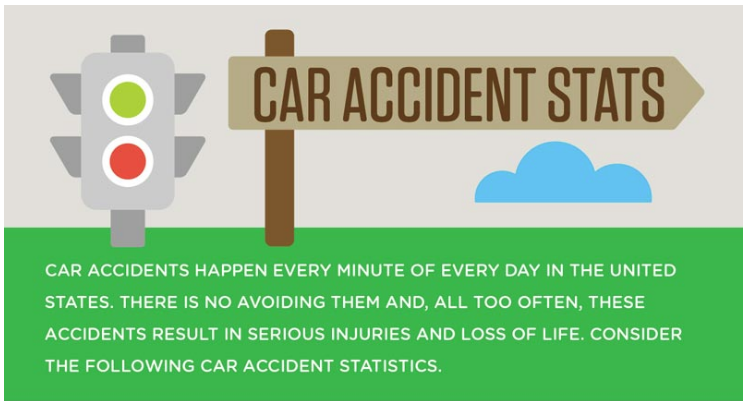A low-speed collision really can cause injuries, even if the damage to your vehicle seems minor. These types of accidents, often referred to as low-impact car accident injuries, can lead to serious issues like whiplash, soft tissue damage, or even long-term pain.
Common scenarios, such as fender benders in parking lots, are prime examples of how these injuries can occur. Filing an insurance claim for a low-speed accident can still be challenging. Insurers may try to downplay the extent of your injuries.
If you’ve been hurt in a low-speed accident, a Charlotte parking lot accident lawyer can help you understand your rights and pursue compensation for your injuries.
How do Injuries Occur in Low-Speed Collisions?
When vehicles collide, the energy of their impact transfers to the occupants, often causing the body to move in ways that the joints, muscles, and ligaments are not designed to handle.
Additionally, if there is minimal vehicle damage, the force of the impact is absorbed by the occupants rather than the car itself.
Many people assume that low-speed collisions, often referred to as low-impact car accidents, cannot cause significant injuries. However, research shows that even minor accidents can result in serious injuries to vehicle occupants.
Because there is often no visible vehicle damage in these accidents, people often underestimate the physical harm they can cause. After any type of collision, even a seemingly minor fender bender, you should always seek medical attention and consult a Charlotte car accident lawyer.
For a free legal consultation, call (877) 333-1000
What Types of Injuries Can Result from Low-Speed Collisions?
Low-speed accidents can result in a wide range of injuries, from soft tissue damage to chronic pain and neurological symptoms. If you’ve been injured in a low-speed collision, it’s essential to seek medical attention and consult a Charlotte personal injury lawyer.
Common low-impact injuries that can result from low-speed collisions include:
- Whiplash: Whiplash is one of the most frequent injuries sustained in low-speed collisions. It occurs when the sudden impact forces the neck to snap forward and backward, resulting in strain or tears to the soft tissues, such as muscles, tendons, and ligaments. Studies cited in the article explain that even impacts under 10 MPH can create enough force to damage the cervical spine, leading to ongoing pain, stiffness, and limited mobility.
- Soft tissue injuries: Soft tissue injuries, including sprains, strains, and bruising, are common in low-speed accidents. They often affect the neck, shoulders, and back. Myofascial trauma (injury to the muscles and connective tissues) is the most common result of whiplash and other low-impact injuries.
- Headaches and concussions: Even at low speeds, the sudden jolt of a collision can cause the brain to move within the skull, leading to concussions or other types of head trauma. These injuries may not show immediate symptoms but can result in dizziness, nausea, and cognitive issues over time.
- Back injuries: Low-speed collisions can also cause injuries to the lower back due to the transfer of energy through the spine. Herniated discs, muscle strains, and even small fractures in the vertebrae have been documented in these types of accidents.
- Nerve damage: Nerve injuries, such as radiculopathy or pinched nerves, may occur when the force of the collision causes herniated discs or inflammation in the spine. Symptoms can include tingling, numbness, or shooting pain, especially in the arms or legs.
Symptoms of Low-Impact Car Accident Injuries
Injuries from low-speed collisions often present immediate symptoms, but many can also be delayed. Therefore, it is critical to monitor your health closely after an accident. Common immediate symptoms include neck pain, stiffness, and headaches.
These are often signs of whiplash or soft tissue injuries caused by the sudden jolt of the collision. Delayed symptoms, which may take hours or even days to appear, can include dizziness, fatigue, and persistent headaches. These could indicate more serious issues, such as nerve damage, concussions, or herniated discs.
Even if injuries seem minor, it’s essential to seek medical attention promptly. Some conditions, like whiplash or nerve damage, may worsen over time if left untreated.
Early diagnosis and treatment not only improve recovery but also provide the necessary documentation for any legal or insurance claims you may need to pursue.
Why You Shouldn’t Ignore Low-Impact Car Accident Injuries
Ignoring a minor accident can also complicate your ability to obtain compensation. Insurance companies often downplay injuries in low-impact collisions, and without proper documentation of your injuries and the accident, they may deny or minimize your claim.
Additionally, untreated injuries can lead to higher medical bills and extended recovery periods. Seeking medical attention and consulting a Charlotte parking lot accident lawyer ensures that your health and legal rights are protected, no matter how minor the accident initially seems.
Click to contact our personal injury lawyers today
We Can Help if a Low-Speed Collision Caused Your Injuries
Low-speed collisions may seem minor, but the injuries they cause can have serious, long-lasting effects on your health and well-being. Even if there’s minimal vehicle damage, it’s crucial to take these accidents seriously, seek medical attention, and understand your legal rights. At DeMayo Law Offices, we have the experience and resources to fight for the compensation you deserve.
Our team has successfully recovered over $1 billion for injury victims, and we’re ready to put our knowledge to work for you. Don’t let a low-speed accident disrupt your life—contact us today for a free consultation. Let us help you hold the responsible parties accountable and secure the justice you deserve.
Call or text (877) 333-1000 or complete a Free Case Evaluation form






